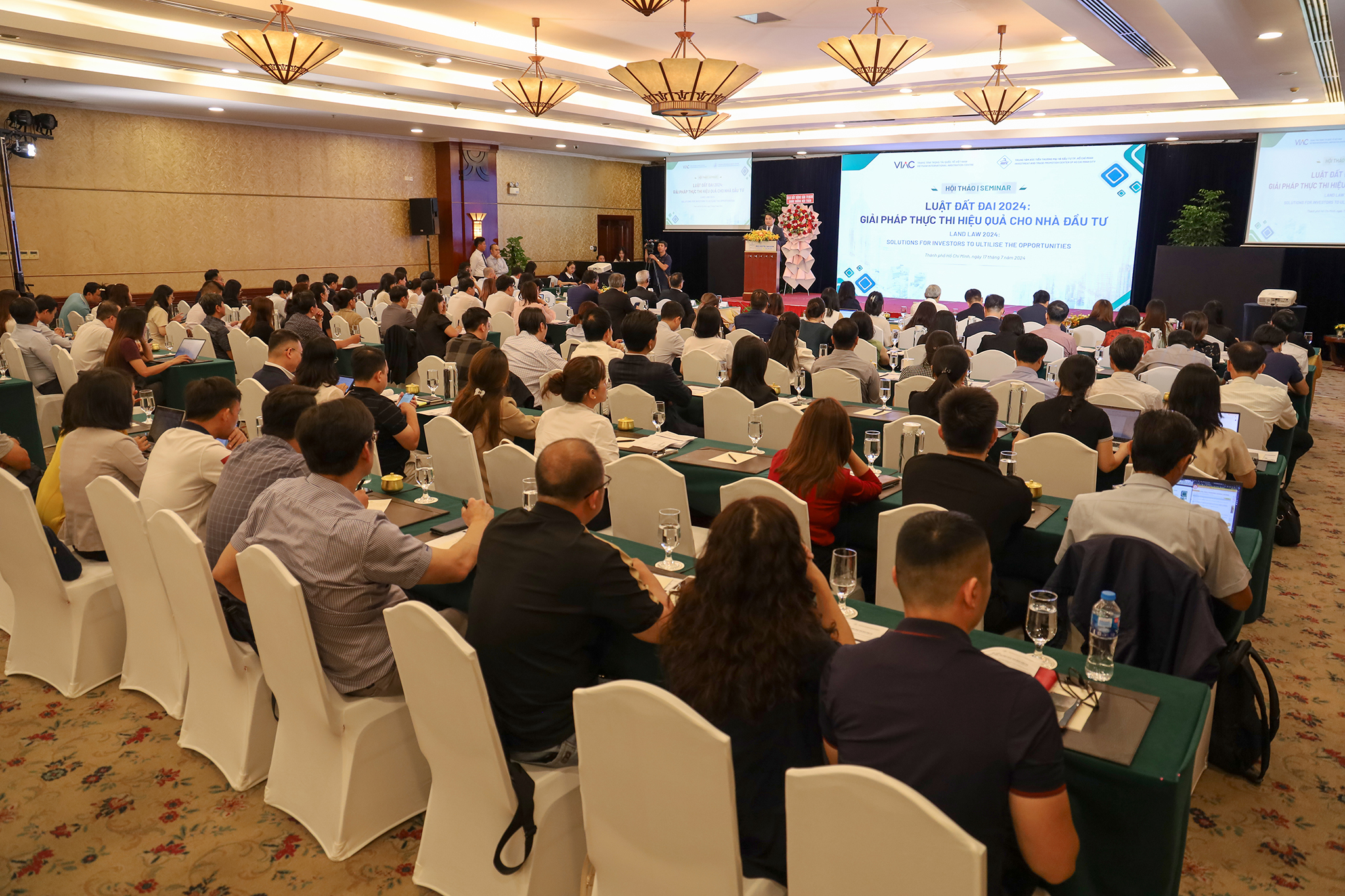

At the seminar, Ms. Cao Thi Phi Van, Deputy Director of the Ho Chi Minh City Investment and Trade Promotion Centre (ITPC), noted that the Land Law 2024 consists of 16 chapters and 260 articles, amending and supplementing 180 out of 212 articles from the Land Law 2013 and adding 78 new articles. Some key highlights include: adding provisions on the rights and obligations of citizens regarding land; revising regulations on land classification; further improving land use planning; expanding the limits on agricultural land use rights transfer for individuals; and adding regulations on the development, management, and exploitation of the land fund. Additionally, the Land Law 2024 includes decentralization clauses, delegating authority to localities to better align with the actual conditions of each area, and legalizing provisions that have been proven suitable through practice, thereby helping to resolve difficulties, remove obstacles, and unlock land resources for the country's development.

In his opening speech, Mr. Chau Viet Bac, Vice Secretary General of the Vietnam International Arbitration Centre (VIAC), mentioned that statistics from VIAC in 2023 showed an increase in the number of real estate disputes, accounting for about 26.18% of the total number of cases, with many involving land-related issues. However, due to the limitations of legal regulations, these disputes often raise concerns for both parties and the Arbitration Panel regarding jurisdictional authority. The revised Land Law 2024 Law addresses this issue with mechanisms to resolve such concerns. From an investment perspective, Mr. Bac assessed that with many improvements in the current Land Law, investors will have easier access to land, simplified and more transparent procedures, and the removal of many legal obstacles. Therefore, before the law takes effect, investors need to quickly equip themselves with the necessary knowledge and information to operate effectively under the new legal framework.
-(1).JPG)
In his presentation, Mr. Phan Duc Hieu, Standing Member of the Economic Committee of the National Assembly, VIAC's Arbitrator, highlighted the new points and improvements in the Land Law 2024 Law for investors, along with key issues to consider in understanding and applying the new land-related legal provisions. Mr. Hieu mentioned that the recent reforms in the Land Law 2024 Law focus on improving five main areas, including:
He emphasized that to fully understand and accurately assess the issues raised by the Law, it is necessary to approach the regulations comprehensively, based on three factors: the entities involved, the types of projects, and the types of land. According to Mr. Hieu, the amended Land Law broadens the scope of “agreement,” clarifying provisions related to land transfer, inheritance, gifting, contribution of land, and land use rights conversion, thus making it easier for both citizens and investors to access land. This represents a significant leap forward in legal provisions. Furthermore, Mr. Hieu pointed out the Law's efforts to align with the Investment Law 2020 to address the current challenges faced by investors.


In the discussion session, moderated by Mr. Luong Van Ly, Senior Advisor at Global Vietnam Lawyers, VIAC's Arbitrator, various experts addressed and discussed numerous questions from FDI (Foreign Direct Investment) enterprises related to changes and impacts of the Land Law 2024 Law on the market, particularly regarding land recovery, land use conversion, and other related issues. They also clarified provisions in the law concerning foreign investors, foreign-owned entities, and other related legal aspects.